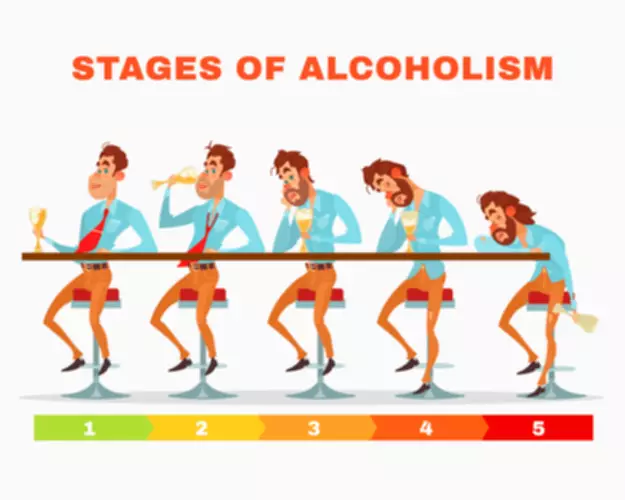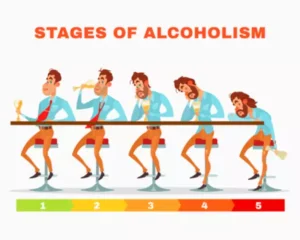
Our brains are wired to want a reward – and that wave of euphoria you feel when you take that first bite of your brownie or sip of wine is dopamine surging through you. If you need help cutting alcohol out of your life, we’re here to help and would be happy to talk. Additionally, what is Oxford House the central nervous system coordinates hormones that affect your mood, such as dopamine and serotonin.
What can you do to manage and reduce brain fog from drinking?
It can provide invaluable support by addressing underlying mental health issues and developing coping mechanisms to prevent relapse. It can also help manage symptoms of alcohol withdrawal, such as brain fog, for a more successful recovery journey. When you decide to quit drinking alcohol, your body goes into a state of shock, leading to alcohol withdrawal. This sudden absence of alcohol can lead to various alcohol withdrawal symptoms, including alcohol withdrawal brain fog. Keep an eye out for memory problems, poor motor skills, and slow reaction times – these are common symptoms of withdrawal-induced brain fog.

Are you missing these signs of anxiety or depression?
Counseling, therapy, or a support group can all help manage the cognitive problems caused by drinking. Treating the underlying issues, as well as the drinking problem, is necessary to improve general brain health and alcohol brain fog wellness and overcome alcohol-induced brain fog. If alcohol-related brain fog lasts for a long time, it may exacerbate cognitive decline and memory loss.
- If drinking too much ruins your sleep, you may wake up with a double dose of brain fog.
- The cognitive dysfunction can impact your life negatively, affecting your career, relationships, and overall motivation.
- It might be challenging to think clearly, and you could feel confused or need help making decisions.
- Therefore, it is crucial to drink plenty of water when you are trying to relieve the symptoms of alcohol fog or brain fog in general.
Can alcohol cause permanent cognitive impairment?

There are many different types of healthy withdrawal programs available. Another simple but effective way to reduce brain fog is to get some sunlight. Just be sure to avoid sugary drinks as they can actually worsen brain fog. Alcohol can disrupt sleep, so it’s important to get plenty of rest after drinking.
- Include foods that are rich in antioxidants, such as fruits, vegetables, and whole grains, which help protect the brain from oxidative stress.
- The effects of alcohol on the brain often dissipate within a day or two of cutting back on consumption, particularly in conjunction with adequate hydration and rest.
- Additionally, your primary care physician might recommend customized alcohol treatment programs.
- Striatal cholinergic interneurons (CINs) are key to regulating behavioral flexibility, involving both extinguishing learned actions and adopting new ones.
- Divorce is a deeply emotional experience, often accompanied by a complex grieving process.
- It can vary from person to person depending on the duration and severity of alcohol abuse.
Try things like deep breathing or meditation to help calm your mind. Prioritizing restorative sleep can help with hangover effects and improve alcohol and brain function. If you’re finding it hard to change your drinking habits on your own, don’t worry! Talking to a doctor or therapist can give you the support you need to make healthy changes. They understand how alcohol affects the brain, including alcohol-induced neuroinflammation, and can help you on your path to alcohol recovery. Mindfulness and meditation can promote relaxation and mental clarity.
- The most common symptoms of dementia include memory loss, problems with language, and difficulty with planning and decision-making.
- Integrated treatment approaches that consider the physical, psychological, and emotional aspects of these co-occurring disorders are essential for effective recovery.
- Dehydration can affect cognitive impairment and make it harder to think clearly.
- Reframe supports you in reducing alcohol consumption and enhancing your well-being.
How can I focus better with brain fog?
Give us a call today and begin your journey toward long-term recovery. This comprehensive approach addresses the physical, psychological, and emotional aspects of dual diagnoses, offering individuals the tools needed for sustainable recovery and a healthier future. From 2 months to 5 years of abstinence people makeincredible cognitive gains and get very close to a full restoration of normal functioning. This guide provides practical strategies, tips, and resources to help you organize your thoughts, manage your time, and write a successful essay. You might find that your decision-making abilities are impaired, making it harder to choose the best course of action. In fact, research has shown that people who are exposed to more sunlight have a lower risk of developing depression.
Mental Health Support:

These impairments make it harder to break free from addiction, further perpetuating the link between alcoholism and depression. These shared neurobiological mechanisms underscore the need for integrated treatment approaches targeting both conditions simultaneously to prevent relapse and support long-term recovery. Alcohol brain fog usually clears up within a few days after you stop drinking. Things like how much you drank, how often you drink, and your overall health can all play a role.

Consider starting a healthy withdrawal program
Different liquors differ in alcohol content, potency, chemical composition etc and so their presence in the system can vary too. Additionally, heavy and prolonged drinking of hard liquor increases the chances of longer brain fog incidents. At United Recovery Project, our holistic approach to addiction treatment centers around addressing and healing theunderlying issues at the root of addiction. The best way to combat this issue is to reduce or eliminate alcohol consumption. This can be done by setting limits on how much you drink, avoiding drinking in situations where https://ecosoberhouse.com/ you may be tempted to overindulge, and seeking advice from others. By committing to long-term sobriety, you can give your brain the chance to heal and witness the positive changes in your brain fog symptoms.
